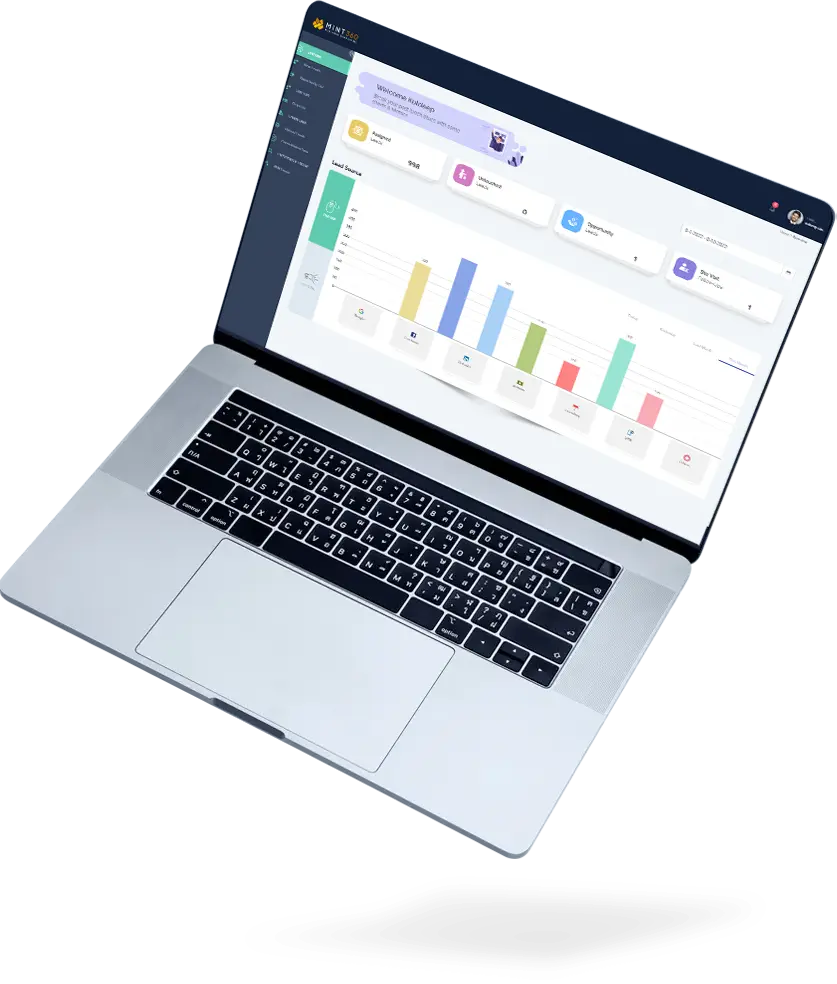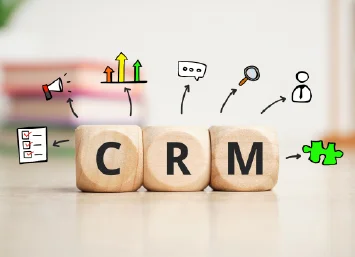India's 1st Online &
Offline Integrated
Lead
Management System
for Real Estate.



The overall sales cycle in the real-estate industry bottles down to effective management of leads. Yet somehow the mass inflow has always created a dilemma among realtors as to how efficiently these leads can be converted into sales without letting it slip. Step in to the Mint360 – a sophisticated Lead Management System designed to help you get more out of your leads right from the second every lead enters the pipeline.
-
Capture
Online & Offline
IntegratedCentralized Data
Collection -
Process
Intelligent Two Stage
FilterationsNurture Only The
Right Leads -
Convert
Increase Conversions
By 100%Map Buyer
Profile
Measure
Single Point System for In-depth Analysis &
Real Time Tracking

Powered By

Driven by 15+ years of expertise in marketing and technology working hand-in-hand with some of the country’s biggest real-estate developers has given us a unique insight into creating India’s 1st Comprehensive Online and Offline Integrated Lead Management System.


FAQs
What is a lead management system?
A lead management system is a software solution designed to capture, track, and manage potential leads throughout the sales funnel. It helps businesses systematically organize and nurture leads by automating follow-ups, tracking interactions, and prioritizing leads based on their engagement and potential value. This system facilitates efficient lead handling, from initial contact through conversion, ensuring that no opportunities are missed. By centralizing lead information and providing insights into lead behavior, a lead management system improves sales efficiency, enhances lead conversion rates, and supports effective decision-making through data-driven analysis.
What is lead management in CRM?
Lead management in CRM (Customer Relationship Management) refers to the process of tracking and managing potential customer leads through various stages of the sales funnel within a CRM system. It involves capturing lead information, assigning and nurturing leads, and tracking their progress from initial contact to conversion. CRM systems provide tools for automating lead follow-ups, segmenting leads based on criteria, and analyzing lead interactions. This process ensures that leads are handled efficiently, enabling sales teams to prioritize high-value opportunities, improve conversion rates, and maintain organized and effective customer engagement strategies.
What is lead management software?
Lead management software is a specialized tool designed to streamline the process of capturing, tracking, and nurturing leads throughout the sales cycle. It helps businesses organize lead information, automate follow-ups, and manage lead interactions more efficiently. Features often include lead scoring, segmentation, automated workflows, and analytics. This software supports sales and marketing teams by providing insights into lead behavior, optimizing lead conversion strategies, and ensuring timely and personalized communication. By automating routine tasks and centralizing lead data, lead management software enhances overall efficiency and effectiveness in managing potential customer opportunities.
Find the best software for lead management?
To find the best lead management software, consider factors such as ease of use, features, integration capabilities, and cost. Look for software that offers key functionalities like lead capture, tracking, scoring, and automated follow-ups. Check user reviews and ratings to gauge effectiveness and customer satisfaction. Evaluate whether the lead management system features includes integration with your existing tools and systems, such as existing CRM or marketing platforms. Additionally, consider whether the software provides robust analytics and reporting features to support data-driven decision-making. Trial versions or demos can also help assess how well the software meets your specific needs before committing.
How do I find solutions for lead management?
Finding solutions for lead management involves assessing your business needs and identifying software that aligns with those requirements. Start by defining the key features you need, such as lead capture, tracking, scoring, and automation. To find a lead management platform with the necessary capabilities, review and compare options based on user feedback, recommendations, and feature evaluations. Evaluate the software's ease of use, integration with other tools, and support services. Consider reaching out to vendors for demonstrations or trials to see how well the solutions fit your processes. Consulting with industry peers or experts can also provide valuable insights into effective lead management solutions.
What are the features of lead management software?
Lead management software typically includes features such as lead capture forms, automated lead distribution, lead scoring, and segmentation. It allows users to track lead interactions and progress, set up automated follow-ups and reminders, and manage lead data centrally. Other key features include integration with CRM and marketing tools, customizable dashboards, and detailed analytics and reporting. These features help streamline lead handling processes, prioritize high-value leads, and provide insights into lead behavior and conversion rates. The software aims to enhance efficiency, improve lead nurturing, and ultimately increase the likelihood of converting leads into customers.
How to find the best lead management platform?
To find the best lead management platform, start by assessing your specific business needs and objectives. Look for platforms that offer essential features such as lead capture, tracking, scoring, and automation. Compare different platforms based on user reviews, feature sets, ease of use, and integration capabilities. Evaluate their scalability to ensure they can grow with your business. Consider whether the platform offers robust analytics and reporting tools for data-driven decision-making. Request demonstrations or trials to test functionality and user experience. Additionally, check for reliable customer support and training resources to assist with implementation and ongoing use.
How does real estate lead tracking software work?
Real estate lead tracking software works by capturing and managing leads from various sources, such as website forms, social media, and referrals. The software centralizes lead information, allowing real estate professionals to track interactions, schedule follow-ups, and monitor lead progress through the sales funnel. It often includes features like lead scoring to prioritize prospects, automated notifications for timely follow-ups, and detailed reporting to analyze lead performance. By providing a comprehensive view of each lead’s status and engagement, the software helps agents manage their pipeline efficiently, optimize their outreach efforts, and improve conversion rates.
How to select the best lead management software for real estate?
Selecting the best lead management software for real estate involves evaluating several key factors. Look for software that offers real estate-specific features such as property tracking, client segmentation, and automated follow-ups. Ensure it integrates well with other tools like CRM systems and marketing platforms. Assess ease of use, customization options, and scalability to match your business size and needs. Review customer feedback and case studies to gauge effectiveness in real estate contexts. Consider trial versions or demos to test functionality and ensure the software meets your requirements for managing and nurturing leads effectively in the real estate market.
How to manage lead management CRM for real estate?
Real estate CRM lead management involves several key practices. Start by configuring the CRM to capture and organize lead information from various sources, such as websites, social media, and referrals. Use features like lead scoring and segmentation to prioritize and categorize leads based on their potential value. Set up automated workflows for follow-ups, reminders, and nurturing tasks to ensure timely and consistent communication. Regularly update and review lead data to track progress and adjust strategies as needed. Utilize reporting and analytics tools to monitor lead performance and make data-driven decisions to enhance your lead management efforts.






